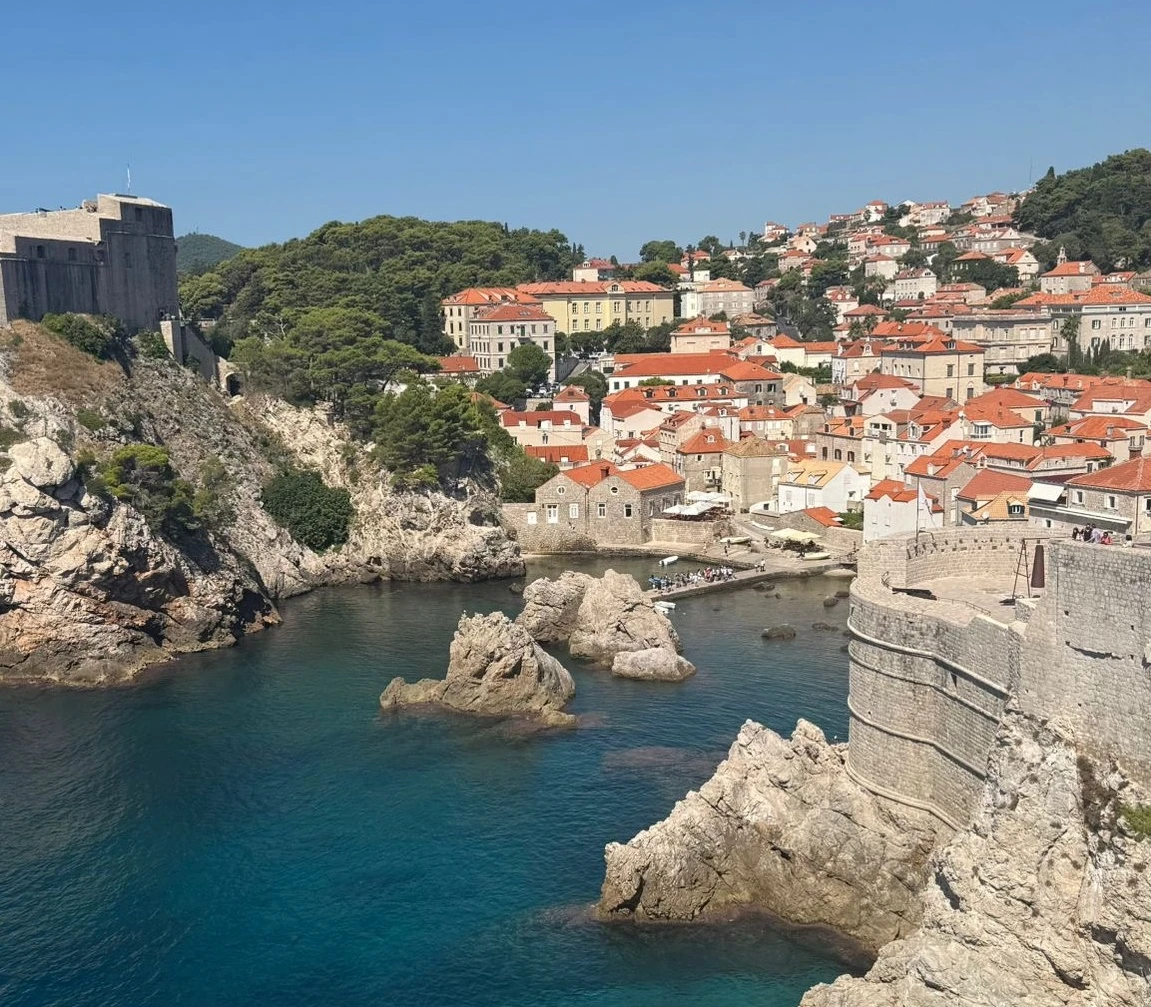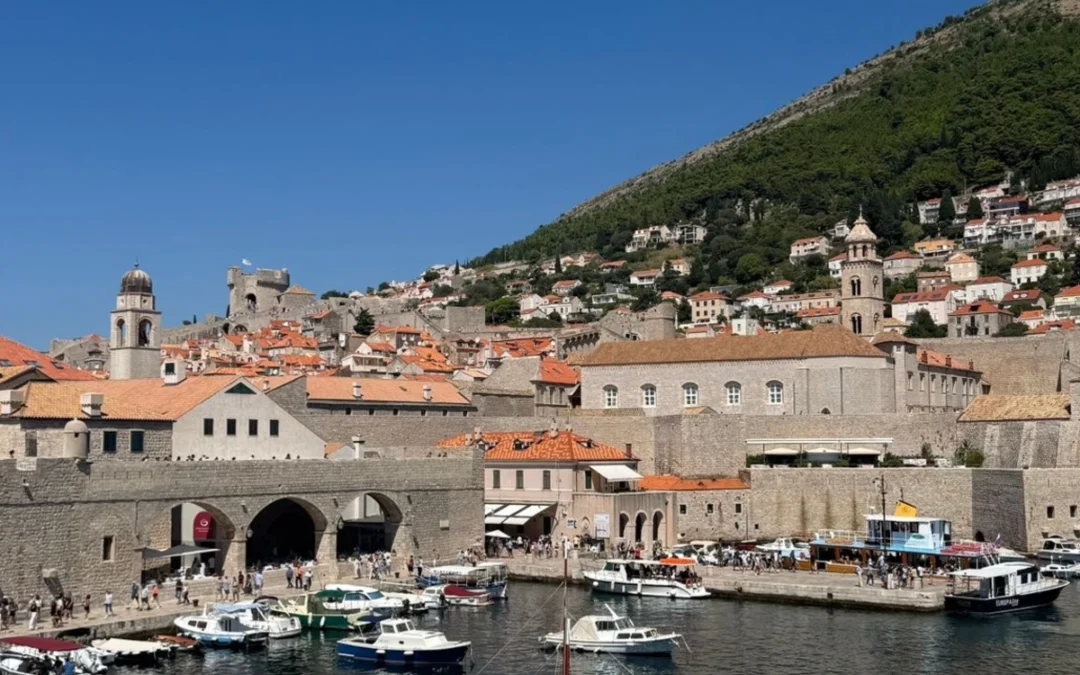A Week That Felt Like a Month
I recently returned from a family holiday in Dubrovnik – a beautiful, historic town I’d highly recommend. Nestled along the Adriatic coast, Dubrovnik is a tapestry of terracotta rooftops, ancient stone walls, and shimmering blue waters. The weather was perfect, the villa stunning, and we enjoyed precious time together. We swam, ate and drank well, explored the town, hired a boat, read, and simply relaxed. Time stood still for a week.
Before we left, I had been worried. I know how quickly a week flies by in the office. In a blink, it’s Friday. Would the holiday feel the same? Would it vanish in a haze of sunscreen and sunsets?
To my surprise, the holiday felt far longer than a week. When I returned to the office, it felt like I’d been away for a month. This experience sparked a question: how could I hold onto that holiday feeling and slow time down in everyday life? I wanted to enjoy each task, each conversation, and avoid rushing through the day in a whirlwind of chaos. I craved mindfulness and contentment.

The Experiment: Slowing Down
So, I made a conscious effort to slow down. I prioritised what truly mattered and delegated or let go of the rest. I’d tried this before – just trying harder to be mindful and while it helped, it wasn’t the full answer. This time, I dug deeper.
I did some research and discovered something surprising: to make time feel slower, the trick isn’t to do less, but to do more. Not more of the same, but more of what’s different.
The Science of Time Perception
When something unusual happens – like exploring a place or tasting a new cuisine – your brain pays more attention. This makes the moment feel longer, even if it lasts the same amount of time as a routine one. Neuroscientists suggest that the brain uses memory markers to estimate duration. More markers = longer perceived time. That’s why childhood summers felt endless: they were packed with new experiences. As adults, routine shrinks time. Holidays reverse that.
Emotion plays a role too. Joy, awe, even mild anxiety (like navigating a foreign city) heighten awareness. Emotional intensity slows time perception because it forces us to be present. On holiday, we’re often more emotionally engaged – less distracted, more attuned to our surroundings. This emotional richness deepens the sense of time passing slowly.
Bringing Holiday Lessons Home
I started to experiment with this idea in small ways. I took a different route to work. I tried new recipes. I signed up for a pottery class. I rearranged my living room. Each small change added a spark of novelty to my day. And slowly, I noticed time stretching. My days felt fuller, richer, and more memorable.
This approach shifted how I viewed daily life. Instead of treating novelty as something reserved for special occasions or holidays, I began weaving it into ordinary routines. It wasn’t about grand adventures every day – it was about small, deliberate changes that made my world feel fresh again.
Practical Ways to Stretch Time
The good news? You don’t need a plane ticket to stretch time. You can hack your perception by injecting novelty into your daily life:
- Learn something new: a language, a recipe, a musical instrument.
- Explore unfamiliar places: visit a different part of your city or take a new route to work.
- Break routine: rearrange your furniture, change your morning ritual, try a new café.
- Engage your senses: listen to new music, wear a bold colour, cook with unfamiliar spices.
- Connect deeply: have meaningful conversations, write letters, share stories.
These practices disrupt autopilot and engage your brain with fresh stimuli, allowing you to recreate the temporal richness of a holiday. Time slows when life feels full and fullness is something you can cultivate, wherever you are.
The Deeper Lesson
What struck me most was how much agency we have over our experience of time. I used to think of it as a relentless force, rushing forward no matter what. But in reality, our perception of time is fluid. When life is varied, emotionally rich, and full of presence, time feels abundant. When it is monotonous and distracted, it shrinks.
Croatia reminded me that life doesn’t have to pass in a blur. We can choose to pause, notice, and shape the texture of our days. The secret isn’t only in slowing down – it’s in making space for novelty, curiosity, and wonder.
Closing Thought
So next time you feel life rushing past, remember: time isn’t slipping away – it’s waiting to be noticed. And sometimes, the most profound lessons come not from textbooks or seminars, but from sun-drenched afternoons in Croatia, where time paused just long enough to teach me how to live more fully.
At James Todd & Co, we believe time well-spent matters in life and in business. Contact us to see how our accounting services can help you and your business.

